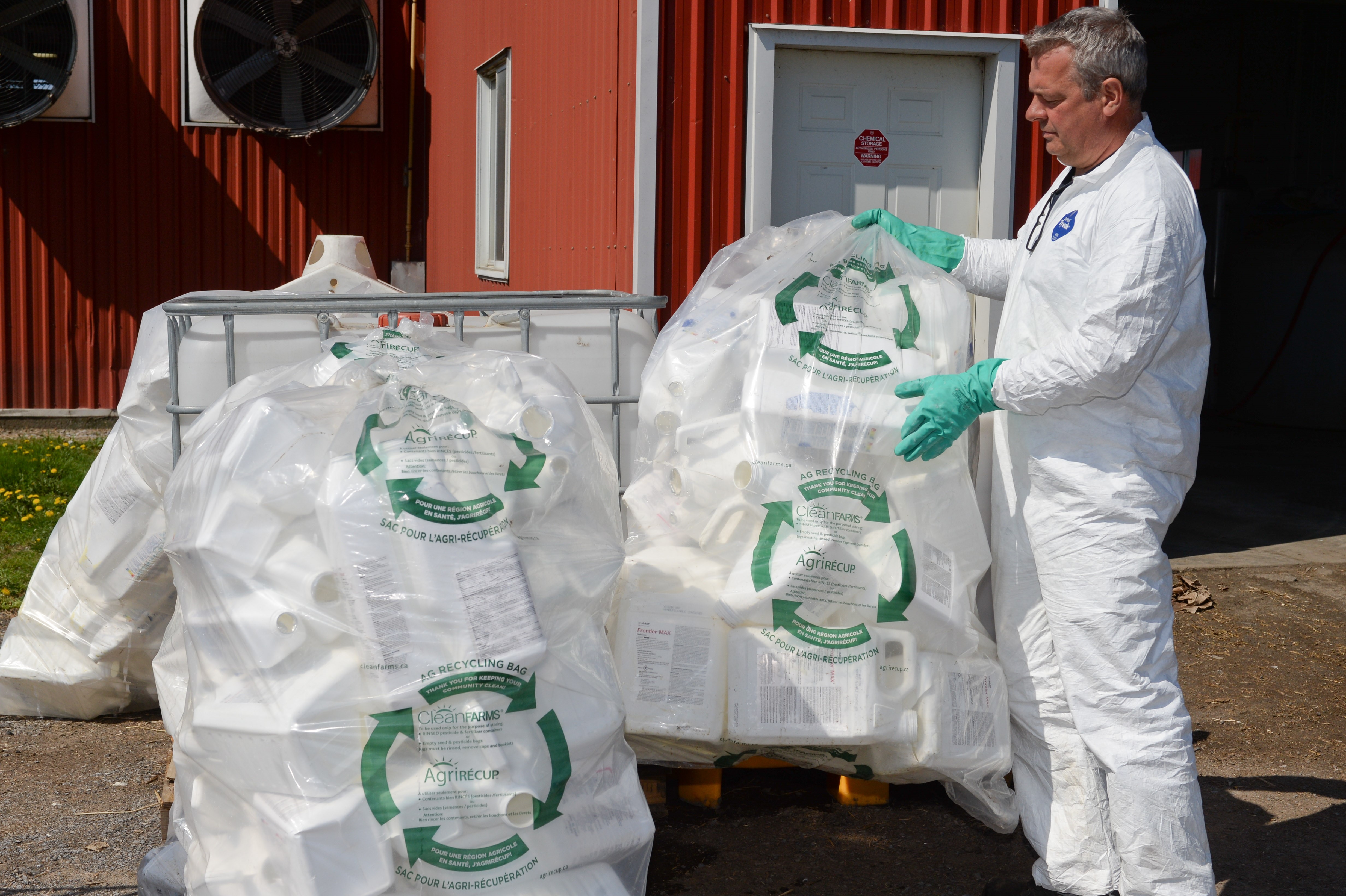
End-market study for used Ag plastics helps Cleanfarms plan recycling programs
by CM Staff

The study established a benchmark of the scope and capacity available in end markets that could accept certain ag plastics for recycling.

Agricultural plastics such as empty pesticide and fertilizer containers that are recycled through Cleanfarms’ stewardship programs contribute to the organization’s goal to send zero ag plastic waste to landfill.
ETOBICOKE — As part of its goal to develop and implement a comprehensive Canada-wide Zero Plastic Waste Strategy for agricultural plastics, Cleanfarms has released the results of an assessment of ag plastics recycling end markets based on existing North American capacity and market pressures such as supply and demand changes.
The study established a benchmark of the scope and capacity available in end markets that could accept certain ag plastics for recycling. Its results will inform potential next steps for the ag plastic recycling programs and pilots that are in place across Canada.
“Our job at Cleanfarms is to build on the successes of the recycling programs that we have in place so that we progress toward our goal of zero plastic waste in Canadian agriculture,” said Cleanfarms Executive Director Barry Friesen. “The availability of viable end markets is key to the longevity and efficiency of recycling programs and our team is committed to ensuring that the materials collected for recycling through Cleanfarms programs can be reprocessed in North America for manufacturing into new products and packaging.”
The study rates end-markets based on their level of stability in late 2019 and throughout 2020 and serves as a jumping off point for ongoing market analysis by the Cleanfarms team.
The study also outlines the various market forces that influence end market availability. It notes that numerous private sector and government-led initiatives are underway with an aim to improve demand for recycled content which will help drive consistent requirements for recycled ag plastics as feedstocks in manufacturing.
Cleanfarms released the end-market study as a follow-up to a related report, Agricultural Plastic Characterization and Management on Canadian Farms, released in early August.
Cleanfarms undertook the dual study with the financial support of the Government of Canada through Environment and Climate Change Canada.